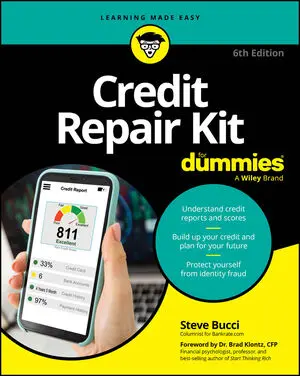As you consider bankruptcy, take into account: Can you do anything more to help meet your obligations? Do you have hope of finding a solution that’s acceptable to both you and your creditors? If you answered no to both questions, you’re on the right track in considering bankruptcy.
Before you make the final decision, review the following:
Be sure that bankruptcy will solve your financial crisis. Getting rid of all your debts and making collectors go away may solve one problem, but if the real problem is too much spending and not enough income, declaring bankruptcy won’t help you for very long. Likewise, bankruptcy won’t help if you’ve been using credit to supplement your income for basic living expenses.
Understand bankruptcy’s effects on your goals. Ask yourself how this decision will affect your chances of buying a home, getting married or divorced, or getting a job. The consequences of bankruptcy affect you for years.
Consider all your options. Make a list of other ways to deal with your debts. Can you reduce your expenses? Sell some possessions to pay your bills until your situation improves?
Talk to a good credit counselor. You have to meet with a credit counselor anyway within six months of filing for bankruptcy. Expect this visit to give you options; an analysis of your spending and income, including a written budget; and an action plan. This consultation goes a long way toward answering the question of whether bankruptcy will help you.
Get a professional legal opinion. Find a lawyer who does a lot of bankruptcies. Find out whether you qualify for bankruptcy and, if so, which chapter. Make sure you understand what bankruptcy can and can’t do for you. Ask about alternatives, including settlements and statutes of limitations. Also ask about the pluses and minuses of filing for bankruptcy on your own.
Talk to your creditors. If you’re considering a bankruptcy, let your lenders know and ask if they can offer you a repayment plan. Don’t expect too much, but it’s always worth a shot.
Consider the stiffer consumer rules in the Bankruptcy Abuse Prevention and Consumer Protection Act of 2005. This change to the law was enacted because lenders convinced Congress that a significant number of consumers had abused bankruptcy protection. The act established restrictions to try to cut down on such abuse. Here’s a brief summary of the main provisions that can help you decide whether bankruptcy is right for you:
Passing a means test is required to be eligible for Chapter 7. Except in limited circumstances, your net income has to be below the median income in your state of residence to file for liquidation of your debts in a Chapter 7.
You’re required to get credit counseling from an “approved nonprofit budget and credit counseling agency” before you file. The Executive Office of the U.S. Trustee provides a list of approved agencies from which you may choose. Find out who’s on the list by contacting the clerk of the court where your bankruptcy is to be filed, by visiting the U.S. Department of Justice website, or by asking your attorney.
After you file, you must complete a course in financial management before you’re discharged from bankruptcy. You may contact the same provider for this requirement as for the credit counseling requirement, or you can use a different provider. Check out this list of approved providers.
You’re limited in what you can buy immediately before filing. Having made the decision to file, you’re prevented from going out and spending up a storm or taking out cash advances and then not having to pay. Generally, the limits apply to the 90 days preceding your filing.
You have to wait a long time after getting a discharge for bankruptcy before you can get another one. The law requires eight years between Chapter 7 bankruptcy discharges, two years between Chapter 13 bankruptcies, six years between a Chapter 13 and a Chapter 7, and four years between a Chapter 7 and a Chapter 13.
Your homestead exemption is limited by state law. In addition, if you acquired your home less than 40 months before filing, you’re allowed a maximum exemption of $155,675, regardless of your state’s exemption allowance.
Under Chapter13bankruptcy, you’re allowed to spend only what the IRS guidelines allow. The rest of your disposable income must be included in the plan, and every year you have to document your income and expenses.
Your attorney must certify that what you say in the documents you submit to the court is true.
You still may owe some past and future debts. These debts include taxes (incurred in the last three years, unfiled, or filed late), domestic support, restitution and fines for drunk-driving injuries and other criminal offenses, and student loans. Courts generally do not discharge student loans.
Domestic-support obligations are a priority debt that you must pay. A priority debt takes precedence over other debt payments you owe and is paid completely. However, the bankruptcy trustee gets administrative fees before your spouse, ex-spouse, or kids get their money.
You may be evicted if you don’t pay your rent after you’ve filed for bankruptcy.
You must provide your most recent tax return to your creditors if they ask for it. Before you can finalize your bankruptcy, you need to give your creditors information about your financial status so they can see that you can’t afford to pay what you owe.
Visit with people who care about you. Although these people may not be professionals, they know you and may offer important perspectives.
Look in the mirror. How do you see yourself? Consider your goals; weigh the options offered by your creditors, your credit counselor, and your lawyer; and consider the advice of others who care about you.






